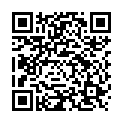|
|
|
| Module code: UI-PRA |
|
|
1V (1 hour per week) |
|
22 |
| Semester: 4 |
| Mandatory course: yes |
Language of instruction:
German |
Assessment:
[updated 04.01.2025]
|
MAB_19_A_6.01.PRA (S241-0275) Mechanical and Process Engineering, Bachelor, ASPO 01.10.2019
, semester 6, mandatory course
UI-PRA (S251-0038, S251-0040, S251-0041) Environmental Technologies, Bachelor, ASPO 01.10.2021
, semester 4, mandatory course
UI-PRA (S251-0038, S251-0040, S251-0041) Environmental Technologies, Bachelor, ASPO 01.10.2023
, semester 4, mandatory course
UI-PRA (S251-0038, S251-0040, S251-0041) Environmental Technologies, Bachelor, SO 01.10.2025
, semester 4, mandatory course
|
15 class hours (= 11.25 clock hours) over a 15-week period.
The total student study time is 660 hours (equivalent to 22 ECTS credits).
There are therefore 648.75 hours available for class preparation and follow-up work and exam preparation.
|
Recommended prerequisites (modules):
None.
|
Recommended as prerequisite for:
|
Module coordinator:
Studienleitung |
Lecturer: Studienleitung
[updated 04.08.2023]
|
Learning outcomes:
Students will become familiar with the diverse career opportunities for environmental engineers in engineering firms, regulatory agencies, municipal administrations, transportation companies, energy supply companies, insurance companies, manufacturing and technology firms, and research institutions.
They will be able to apply the skills and talents they have acquired so far in specific professional situations by constructively working on engineering or research-oriented tasks.
They will be able to deal with internal company matters in terms of organization as well as administrative and technical processes. Furthermore, they will be able to integrate themselves into the social structures of work situations.
Students will be able to write up the knowledge they have acquired in an internship report based on a deeper examination and reflection on the work they have done during the internship. During their final presentation, students will show that they can communicate a technical subject to an audience based on a key topic of the internship.
[updated 04.01.2025]
|
Module content:
Depends on the topic and institution in which the practical phase is completed.
[updated 05.10.2020]
|
Recommended or required reading:
Depends on topic
[updated 05.10.2020]
|

